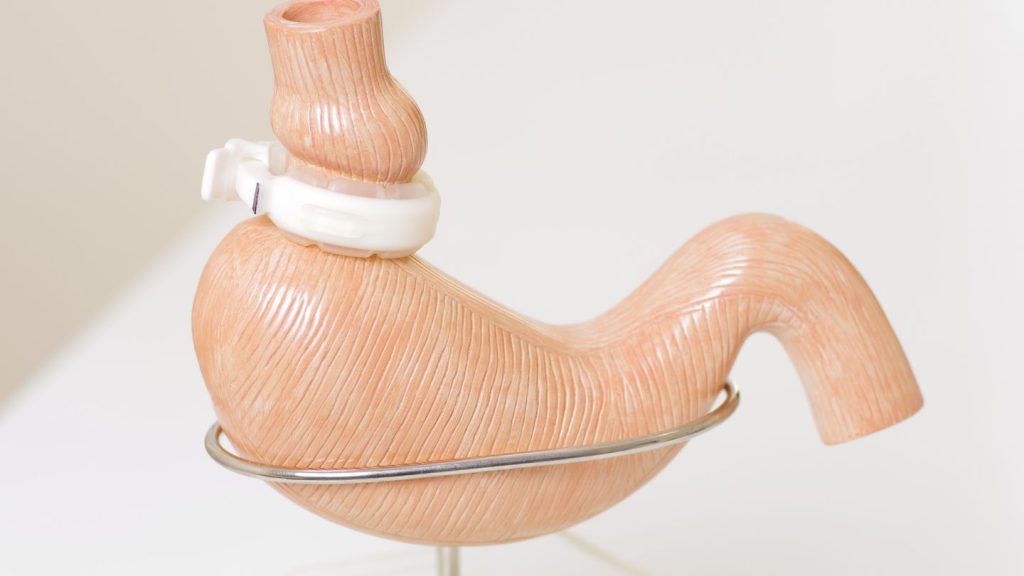
Best Practices for Birth Control After Bariatric Surgery: What to Know
After undergoing bariatric surgery, individuals encounter unique considerations around birth control due to changes in medication absorption and rapid weight loss. This blog explores best practices for selecting effective contraceptive methods to support health and prevent unintended pregnancies during the recovery and weight management journey.
Key Takeaways
- Medication Absorption Changes: Bariatric surgery, particularly gastric bypass surgery, affects medication absorption, making certain birth control methods, like birth control pills, less effective.
- Consulting Healthcare Providers: Consulting with your bariatric surgeon and healthcare team before and after surgery is essential for selecting reliable birth control methods tailored to individual needs.
- Preventing Unintended Pregnancies: Effective birth control post-surgery helps prevent unintended pregnancies, protecting bariatric surgery patients from associated health risks during their recovery.
Understanding Bariatric Surgery and Birth Control
Bariatric surgery is a transformative weight loss surgery that often impacts reproductive health, especially for women of childbearing age. Procedures like gastric bypass and sleeve gastrectomy can alter how the body absorbs medications, affecting the effectiveness of traditional birth control methods like oral contraceptives and birth control patches.
For women who have undergone bariatric surgical procedures, it’s crucial to understand these changes and work closely with their healthcare team to select safe, effective contraception. Intrauterine devices (IUDs) and non-hormonal IUDs are often highly recommended due to their reliability and lack of reliance on gastrointestinal absorption, making them ideal for bariatric surgery patients.
Choosing the Right Birth Control Method Following Bariatric Surgery

After weight loss surgery, such as gastric banding and sleeve gastrectomy, it’s crucial to reassess contraception due to changes in medication absorption and hormonal shifts. Consulting with a bariatric surgeon or healthcare provider ensures you choose a method that fits your health profile post-surgery.
Highly Effective Methods: IUDs and Implants
IUDs and implants are about 99% effective and don’t rely on the digestive system for absorption, making them ideal for bariatric patients. They offer consistent pregnancy prevention with minimal maintenance, perfect for the post-surgery weight loss period.
Moderately Effective Methods: Shots, Patches, and Rings
Injections, birth control patches, and vaginal rings provide moderate effectiveness and may be suitable alternatives to birth control pills, especially for those at risk of malabsorption. Consulting a healthcare professional is recommended to ensure these options work post-surgery.
Less Effective Methods: Oral Contraceptives
Bariatric procedures, especially gastric bypass surgery, often reduce the effectiveness of oral contraceptives due to absorption issues, increasing the risk of unplanned pregnancies. Alternatives that don’t rely on gastrointestinal absorption are typically recommended.
Risks and Considerations for Birth Control After Bariatric Surgery
For bariatric surgery patients, pregnancy soon after surgery can increase health risks. Rapid weight loss in the months following surgery can raise the risk of birth defects, low birth weight, and conditions like gestational diabetes. For these reasons, effective contraception is essential during the recovery phase to avoid unintended pregnancies and reduce the likelihood of health complications.
Oral contraceptives, patches, and injections may also carry a higher risk of blood clots and other side effects, particularly for individuals with high blood pressure. Long-term birth control options like IUDs and implants are often a safer choice for bariatric patients, as they don’t interfere with the body’s altered absorption and carry fewer risks associated with hormonal birth control.
Timing and Considerations for Resuming Birth Control

The timing of restarting birth control after bariatric surgery is critical. Given that weight loss surgery patients are often advised to wait 12 to 24 months before becoming pregnant, it’s essential to establish reliable birth control measures during this period. Patients should discuss the ideal timing with their healthcare provider to align with their post-surgery health goals.
Additionally, barrier contraceptives like diaphragms may require reevaluation, as losing weight can affect how well these fit. For those considering birth control patches or vaginal rings, it’s generally advisable to wait at least six weeks after surgery to reduce the risk of blood clots.
Fertility and Pregnancy After Bariatric Surgery
Bariatric surgery, including obesity surgery methods like gastric bypass and sleeve gastrectomy, can significantly increase fertility. Weight loss often leads to improved reproductive health, especially for those previously facing infertility due to excess weight. As a result, it’s important for women of childbearing age to understand birth control options, particularly during the initial post-surgery period when the risk of unplanned pregnancy is higher.
Healthcare providers often recommend waiting one to two years before trying to conceive, as nutritional stabilization is essential for a healthy pregnancy. Pregnancies too soon after surgery may lead to nutritional deficiencies, impacting fetal growth and increasing the likelihood of underweight births. Women who do become pregnant post-bariatric surgery generally experience lower rates of pregnancy-related complications, such as gestational diabetes and preeclampsia, compared to pregnancies before weight loss.
Read more: Pregnancy after Gastric Sleeve: What Should You Know
Importance of Consulting Healthcare Providers

For patients who have undergone bariatric surgery, consulting healthcare providers about appropriate birth control options is essential. This collaboration allows you to select methods aligned with your personal health needs, whether aiming to prevent pregnancy during recovery or plan for a healthier pregnancy later.
Individuals should also discuss any pre-existing conditions, such as high blood pressure or irregular periods, which may influence the choice of contraceptive methods. Effective birth control helps manage health risks and supports safe, sustainable weight management.
Final Thoughts
In conclusion, selecting the right birth control after bariatric surgery is vital for health and recovery. By consulting with healthcare providers and considering effective options like IUDs, bariatric patients can prevent unintended pregnancies and support their weight management journey, ensuring a healthier future.
At Ascension Saint Agnes Bariatric Surgery, we are dedicated to guiding you through your weight loss journey and beyond. If you’re considering bariatric sleeve surgery in Maryland, our team is ready to offer personalized care and comprehensive support tailored to your needs. Visit us to discover how we can help you achieve optimal health and well-being.
FAQs
How soon after bariatric surgery can I consider getting pregnant?
Most healthcare providers recommend waiting 12 to 24 months post-surgery before trying to conceive. This allows time for weight stabilization and nutritional adjustment, which supports a healthier pregnancy.
Are non-hormonal IUDs safe for bariatric patients?
Yes, non-hormonal IUDs are safe and effective for bariatric patients. They don’t depend on gastrointestinal absorption, making them a reliable long-term option for preventing pregnancy.
Can weight regain impact the effectiveness of my birth control method?
Weight fluctuations can affect the fit and function of some contraceptives, like diaphragms or other barrier methods. Consult your healthcare provider if you experience significant weight changes to ensure your birth control remains effective.